Today, June 29th, represents what would be the 78th born day for Kwame Ture. Formally possessing the slave name Stokely Carmichael, Ture embodied the most principled integrity of today's revolutionary Pan-African work to bring about one unified socialist Africa. Ture, had the vision and lack of out of control ego (unlike most of us) to recognize that our people's liberation, and the salvation of the planet, were not based on his individual brand - which seems to to be the primary objective of so-called activists today. Instead, he was focused on acknowledging his mortality and the necessity to ensure that activists were created who could duplicate his dedication, commitment, and clear understanding of the contractions we face. His approach placed him in the position of sacrificing an overwhelming level of personal comforts, prestige, and recognition in exchange for hard, unappreciated work to build the foundation for that critical Pan-African work. Often, I was able to observe first hand his principled approach to carrying out his work. Routinely sleeping on people's couches, going long stretches without meals, insane hours in car travel, while being systemically disrespected by people who didn't have enough credibility to scrub his underwear. Despite all of this, you never heard that human complain about anything. Instead, without him even pointing it out, he was committed to providing us his shining example of dignity and discipline. Well, on his born day I'm here to tell you I was always paying attention. I have spent my humble time doing my absolute best to emulate his commitment and discipline. His integrity and courage. And, in doing so I have been able to experience my own taste of the disrespect that comes with principled work. I have absolutely no animosity about that though. Actually, it has served to permit me to have even greater respect for Kwame Ture and what he represented. It has driven me to push myself even harder every day. And, although its admittedly difficult sometimes to reconcile the ease in which people dismiss your hard fought contributions, I can always look to his example to remind myself that none of this is ever personal against me and its certainly not ever about me. For those reasons, I'm eternally thankful to Kwame Ture for his uncompromising example of how to stand up with dignity to this oppressive system without blinking an eye.
0 Comments
I cannot say regarding non-African communities, but in African environments all over the world, practices that are deemed to reflect an elitist philosophical foundation are labeled as "bougie." People who act in a way to appear as if they believe they are better than others are labeled as bougie. I recall that my father, who was a proud working class African man, used to call any African that he thought was behaving in a way to endear themselves to white society a "bougie a - - n - - - - r!"
To the point about my father, the term bougie has evolved into a popular cultural phenomenon all within itself. Everything from nice expensive things to attitudes that suggest a hint of a superiority complex are labeled as bougie. My father and the people who generally use the phrase probably never think about it beyond its popular usage, but the common way in which the word is used sheds light on its actual meaning and what people are saying when they use it. Of course, the term bougie derives from the classical term bourgeois or bourgeoisie which are terms most commonly credited to the writing of economist Karl Marx in the 1800s. Marx provided us with a manuscript diagram of class structure in society. The basis of his analysis was the working class people (we Pan-Africanists would of course add the peasantry to that category) who whether industrial or service, provide the foundation of any society. From Marx's correct perspective, the people who dominate, exploit, and control the working classes are the bourgeoisie who are the spokespersons for the elite classes who own and control the means of production e.g. the resources we depend upon to live, develop, and sustain ourselves. From Marx's perspective, his analysis of class structure was based strictly on material conditions. In other words, materialism is the only driving force for class structure. As African revolutionaries, we take the best that any culture has and we compliment it with the many advances our own culture has contributed. So, we accept Marx's analysis of class, but we change the conditions to reflect our African reality. We recognize the role of the peasantry, a segment Marx practically never discussed. And, we also add in the contributions of Kwame Nkrumah, Sekou Ture and others. It was Nkrumah who argued that ideology, along with materialism, are factors that must be considered in any class analysis. Nkrumah answered the question about how someone who has nothing, like a houseless person, could identify with the class interests of the bourgeoisie despite clear proof that their material conditions do not coincide. That houseless person is ideologically committed to the worldview of the bourgeoisie class and often, as Nkrumah cited, people who are ideologically committed will do more to advance the practical objectives of the bourgeoisie than the bourgeoisie themselves. The above analysis by Nkrumah is important to understand in order to properly digest the method in which African people use "bougie" today. Culturally speaking, as Nkrumah articulated, African people use the term bougie, not just in the material sense of how your class position interacts with the power structure, but with an ideological perspective of how you behave. In fact, I would argue that Africans use the term primarily in an ideological sense. When my father called other Africans "bougie" he was always referencing people who lived in the same working class environment that we did. These people he was labeling were never actually a part of the bourgeoisie class in any material sense. They were people who were as poor as we were, but who acted as if they were better than us. By calling them bougie, my dad was making the point that those people were acting like house slaves. He was making a class distinction between between himself, who he saw as a solid representative of the working class - a rebellious field slave - and any African who he perceived to be desiring to be connected to the established leadership in this country. So, the term bougie has never been viewed as a positive within our communities. House slaves are not commodities people are raised to strive to achieve. Despite the efforts by popular capitalist culture, like television shows and movies, to minimize and diminish the hard class statement someone makes when they call you bougie, its still not viewed as a positive. I'm proud to say that no one has ever called me bougie although I've used that label for many Africans and other people. I consider never being called bougie a badge of honor. I would like to preserve the class basis of that statement. I wish to honor my father and other people's work who never read a book by Marx or Nkrumah in their lives, but who clearly understood that the interests of the ruling classes of this system, and theirs, could never be the same. And, that those of us who mimic our masters, will always be the enemies of humanity. So, the next time someone uses the word "bougie" think about the class components that are actually driving that analysis and how you fit into that picture. I've always had the ability to feel things deeply. I remember feeling like that ability was a curse because I felt such pain, embarrassment, and discomfort with experiences that everyone seemed to just take in stride. As I've matured, I've learned that this is no curse. Its a blessing to be able to feel and experience life on all levels. And, by experience I mean pain as well as happiness. From a dialectical perspective, pain is the gauge from which we learn to evaluate and experience happiness. You cannot have one without the other. So, instead of being unscientific and seeing pain from a position of isolation, I see the pain I experience as education on how to improve errors so as to enable myself to experience more happiness. So, I've grown appreciation for being able to fully experience everything, even that which hurts because that is what life is really all about.
I hear people bragging about it all the time. "I've never been fired from a job! I've never been arrested! I've got great credit", etc. Well, I actually have good credit, but its had its downs over the years. I've certainly been arrested and I've been fired from four different jobs in my lifetime. The point is having great credit, never having been arrested, and never having been fired could be signs of great discipline, commitment, and maturity on your part, but probably just as much, if not more, having all of those "accomplishments" means you are someone who has never really taken any risks for anything beyond your personal comfort and advancement. It doesn't have to mean that, but I would argue that in most cases, it probably does mean that.
The zombie apocalypse movie, show, and gaming industry is a multi-billion dollar industry today. Many people are probably unaware that the zombie concept has been around for decades, but its current manifestation was popularized by the 1968 low budget movie "Night of the Living Dead" created by a college dropout film student. The foreboding line in that movie's beginning happens when the brother and sister are in the graveyard. There is a person wandering around the graveyard some 100 yards away. In the course of ribbing the sister, the brother sees the man and tells his sister; "their coming to get you Barbara!" Neither of them are aware at that moment that the wandering man is the first of 60 years of zombies intent upon eating our flesh, converting us, and wiping out all of humanity.
This is a concept that originates and is maintained by so-called European (white) revolutionaries. People who are supposed to be friends to humanity. They have spent the last 100 years advancing a concept of revolutionary change (that they see themselves as leading of course) that's supposedly going to be taking place in the U.S.? Or maybe Australia? Or Azania as African people call it while everyone else calls it South Africa? This is even a thing in occupied Palestine?
I've written often and from multiple angles about the life and contributions of El Hajj Malik El Shabazz aka Malcolm X. In many of those pieces I've mentioned the role of Minister Louis Farrakhan, the current leader of the Nation of Islam, the organization Malcolm left in an antagonistic way in 1964. I'm writing here what I believe makes a further contribution to clearing up this still fire-lit discussion taking place within African communities everywhere about the actual role, if any, Farrakhan played in the scenario that ended up with Malcolm X being killed by 16 bullets on February 21, 1965 in the Audubon Ballroom in his beloved Harlem, New York.
Especially for those folks who have done things that don't happen with everyone e.g. initiated some outstanding organizing projects that empower people? Written and published revolutionary music, screen plays, books, paintings, etc? Traveled extensively and engaged in work to build up people throughout the world? I mention revolutionary work because that work is never going be recognized by this capitalist power structure. That's a critical piece of this analysis because the overwhelming majority of people are trained to respond to everything based on that thing's connection to the power structure. If the power structure acknowledges it, then to most people, it has legitimacy. If the power structure doesn't acknowledge it, then to most people its not valid. Since revolutionary art and achievements are never acknowledged by the state those works are designed to discredit, most people are not trained to recognize that category of work as legitimate. So, for those of you who have worked hard to have the types of accomplishments indicated above, the question is how much do the people close to you in your life acknowledge and celebrate your contributions?
He used our movement and struggles to advance his own personal media career, but long time CBS reporter/journalist Mike Wallace, who died in 2012, never saw our existence any differently than any other capitalist media operative. Its important that this is said loud and clear because somewhere along the way, Wallace became known as some sort of friend of Malcolm X and our liberation movements.
The myths around Mike Wallace and his support for African liberation evolved from his role in broadcasting one of the most vile and incorrect versions of one of the most influential and independent movements in the history of African people within the U.S. Wallace was the brainchild behind the 1959 television program "The Hate that Hate Produced." As the title of the program demonstrates, it was not intended to be a promotional piece on our struggle. Instead, it was a propaganda piece designed to dehumanize the growing work and influence of the Nation of Islam in our communities during that period of history. The entire thesis of the program was that there was a sect of African people running around that were intent upon hating Europeans (white people). Wallace's narration of the program did a lot to further advance that backward notion. Many African people, possibly operating under the concept that any publicity is good publicity, have long credited Wallace because that one program was this country and the world's first official introduction to the Nation of Islam and Elijah Muhammad in general and Minister Malcolm X in particular. And possibly because of the airing of that program, which was widely watched throughout the nation, Malcolm and the Nation of Islam were able to use the popularity of that program to further recruit our people into its ranks. This is a reasonable assumption. Most Africans recognize that anything the system criticizes about us is something we should look closer embracing while anything the system directs us to is something we cannot trust. With that understanding, maybe some people have oddly felt the need to give Wallace some credit for this phenomenon. If the above is true, Wallace doesn't deserve any credit. Wallace was prodded into working to develop the television program by the likes of Louis Lomax, an African reporter who was an avowed "conservative" who also saw the Nation of Islam and Malcolm X as vehicles to advance his journalistic career. Lomax was quite clear at the time that he saw the views of Elijah Muhammad and the Nation of Islam as reprehensible. He and Wallace both agreed that Malcolm and his then organization were not the positive examples that African people should pursue (like the Southern Christian Leadership Conference and Dr. Martin Luther King Jr.). The interesting thing about this argument is as Malcolm himself was fond of saying in those days, the only reason that King and the mainstream civil rights movement received the attention they received was because of the growing presence of much more militant components within our community like the Nation of Islam. Lomax and Wallace saw producing "The Hate that Hate Produced" as a tactic to discredit the Nation of Islam while holding up the virtue of other more accommodation oriented African organizations. This perspective is proven by the method in which the program highlighted any mention of "white devils" with plenty of commentary to further focus on that element within the Nation of Islam while ignoring the conditions African people experienced that caused the need for organizations like the Nation to form in the first place. The same old imperialist tactic of blaming the victim. There is no hate from any African organization towards Europeans in this world. There is only the cry out for justice and anyone who tries to misrepresent that cry as an attack against white people is someone who has an agenda of discrediting any independent voices for change that don't bow down to the system. Wallace's "reputation" as our friend was somehow further enhanced after the brutal assassination of Malcolm X. For many people, Wallace's was the voice who informed them about the assassination that sad day of February 21, 1965. Wallace's subsequent connection to many of the people attached to Malcolm and his ability to convince them to conduct interviews with him, further strengthened his image as a friend to Malcolm. A friend to African people. A significant factor in this confusion is the high regard for Mike Wallace that has always been on public display from the Shabazz daughters of Malcolm X. Attallah Shabazz, the oldest daughter who at nine years old witnessed the tragic event of 1965, had been consistent throughout years in calling for African people to respect Wallace. It was that relationship that led Attallah Shabazz to agree to come on 60 Minutes in 1995 with Minister Louis Farrakhan in an effort that was billed as a reconciliation between the Shabazz family, Farrakhan (for his incendiary comments against Malcolm during that last year of Malcolm's life) , and the Nation of Islam. Only Ms. Shabazz can answer why she held Wallace in the high regard that she apparently did, but the facts calling for a more critical view of Wallace are indisputable. Less than one year after Malcolm's assassination, Wallace conducted a national television interview with Kwame Ture, who was then known as Stokely Carmichael. Ture was the poster child for the then emerging Black power movement and Wallace wasted little time during that interview working diligently to make Ture appear to be a monster. As Ture attempted to articulate the simple, and ill-refutable, perspective that we as African people have the human right to define our movement, leaders, and direction by any means necessary, Wallace engaged in an extremely crude and racist attack against Ture and the Black power movement as a whole. He accused Ture of being dishonest and ungrateful for the opportunities he had to come into this country from the Caribbean and achieve a college education. He treated Ture's claim that we as a people have the human right to defend ourselves as treason. All of that is classic deflection and paternal dismissal of the legitimate concerns for our dignity that Ture expressed as a 25 year old activist/organizer during that interview. Anyone watching that, and its available today on youtube, cannot in good conscience justify Mike Wallace as anything except a tool for the system against us and our movement. Whatever type of "friendship" Wallace supposedly had with Malcolm has more than likely been overstated by apologists for the capitalist system. Malcolm does speak of Wallace in his autobiography, but not in the glowing terms that Wallace has benefited from since 1965. And certainly, Malcolm's oldest daughter's reluctance to criticize Wallace is puzzling. Its possible that Wallace had a relationship with the Shabazz family after Malcolm's murder that we are not aware of. Still, its certainly true that even if Wallace played a major role in supporting the Shabazz family after Malcolm's life was cut short, Wallace's work to discredit the militant elements of our movement in this country, including that which was best articulated by Malcolm himself, has to overshadow any personal good he hypothetically could have done for the Shabazz family. I think the best testimony to who Mike Wallace was is represented by who attended his funeral. Everyone there from Attallah Shabazz to Donald and Melania Trump was present. The diversity of attendees was addressed by one of the speakers, a fellow journalist, who stated that the wide range of personalities reflected the fact that Wallace knew "everyone." This indicates his proficiency as an opportunistic journalist. Not his concern for humanity. We can come to that conclusion because Wallace rode the waves of our movement to great benefit to himself. His work with "The Hate that Hate Produced" in 1959 launched his career and that and his subsequent work around Malcolm's assassination certainly played a role in helping him land the spot as an anchor on the 60 Minutes program and its that gig that defined his career. He was no friend of ours. He was just another capitalist operative flunky who saw an opportunity to exploit our suffering for another story. Like any and every African who has ever dared stand up for African dignity, Marcus Mosiah Garvey has been ridiculed with efforts to assassinate his image on a consistent basis for the last 100 years. Even antagonisms directed at him by other Pan-African giants like C.L.R. James and George Padmore are being used as evidence that Garvey was not to be respected. We are politically sophisticated enough to understand that everything is dialectical, meaning there are different variables engaging in different levels of conflicts in every material interaction taking place within the universe. In other words, its quite possible for James and Padmore to heckle Garvey, as they often did when hearing him speak on street corners while its equally possible that Garvey made a significant contribution to African people's forward progress. Of course, we cannot speak of Marcus Garvey without acknowledging the contributions of Amy Ashwood Garvey and Amy Jacque Garvey. Without both of these courageous women, the accomplishments of the Universal Negro Improvement Association (UNIA), particularly during the 1920s, could not have been possible. Despite the dribblings of our enemies against those who did their absolute best to represent our struggle with integrity and commitment, we continue to honor the work of the UNIA and its 100+ year commitment to uniting Africa and African people everywhere. The only crime Garvey was guilty of was believing that we could achieve Pan-African unity without challenging the hegemony of the capitalist system e.g. Garvey thought we could buy our independence from the capitalist system. And, this naivete, which is dominant in many areas of the African world today, is a problem that we must scientifically address. The UNIA's Black Star Line shipping business was but one clear example of where they fell short. Believing that the key to our solution was creating a "Black" shipping line that could challenge the corporate dominance of product shipping around the world, Garvey purchased three ships with the intent of using them to facilitate economic trade among Africans throughout the planet. The mistakes Garvey made in this approach were manifested many times. The people he bought the ships from did everything in their power to make him believe he was buying ships that were in much better shape than they actually were. Garvey and his people's inexperience in the matter contributed to them buying ships that were ill prepared to sail in open waters. In fact, one of the ships sank almost immediately upon being purchased. There was very little due diligence performed in the process of buying these ships and much of the rush to complete these transactions was encouraged by the people around Garvey, many of which viewed the UNIA as a vehicle for their personal advancement and not an organizational mechanism for African liberation. Key to the problem with the ships was the lack of understanding of the capitalist shipping model. The UNIA, despite its presence in 33 countries, didn't have the capacity to challenge existing capitalist entities that used shipping lines to move every product you use today that is made in another country (China for example). Garvey's people didn't understand basic capitalist principles that required the ability to make shipping with them cost effective for manufacturers who had no concerns about justice and liberation. Only profits. The other issue that feeds into the challenges of the ships is that the UNIA did not possess any type of comprehensive political education program. Therefore, much of the organizational chatter about Africa was simply rhetorical and not based in any solid foundation that the millions of members were required to study and understand critically. As a result of this idealistic interpretation of Africa and the actual role Africa should play in our liberation around the world, limited concrete organizing on the ground work was waged to this end within the UNIA. The weakness of this was even the practical relationships that the UNIA struggled to form were sentimental and not based in a strong ideological foundation of Pan-African principles. For example, Garvey sought to establish a working relationship with Liberian President Charles King who was president of Liberia throughout all of the 1920s. In the course of this work, Garvey was able to secure a promise from King that if Garvey could deliver science trained experts to Liberia, that country could parlay its massive rubber plantations into some sort of Pan-African entity that would own and control rubber production in Africa. The problem is Garvey was naive about class struggle. He and his people didn't see the interference by U.S. imperialism coming. And, they had no response when imperialism convinced the King government in Liberia to abandon its principled agreement with the UNIA to instead commit to a 100 year contract with Firestone Rubber, effectively selling off Liberia's rubber wealth to capitalism while completely cutting off the Garvey movement from its subjective, yet idealistic, goals of rubber equaling power for African people. Garvey had the right idea with Liberia. The extensive mineral wealth of Africa should be used to alleviate the suffering of African people while serving as our vehicle to engage in our full liberation. Garvey's mistake was in trusting the neo-colonial puppet regime in Liberia while having no strong mass movement there to hold the government accountable to the interests of the people. This lack of political sophistication was linked to consistent type problems that plagued the Garvey organization and eventually ran it into the ground. The primary thrust of sabotaging the UNIA/Liberia agreement was instigation by the then Department of Justice (now the Federal Bureau of Investigation - FBI - within the U.S.). The FBI was then, and still is today, a principle appendage designed to maintain imperialism throughout this globe. In the 20s, the department was being built by a young man named J. Edgar Hoover who went on the lead that agency for its first 50 years of existence. Hoover's initial trumph, before prohibition and the liquor industry, was his sabotage of the Garvey movement. It would be simple to write off the decline of the UNIA in the 20s to FBI sabotage and certainly that was a major issue. It was the FBI that framed Garvey, eventually deporting him (Garvey was a Jamaican national) in 1927. The FBI, through its own documents freed up by the 1974 Freedom of Information Act, confirmed that they knew Garvey himself was not using the U.S. Post Office to commit fraud, but because they had firm evidence that two of his closest aides were in fact committing such acts, they were able to mount a case that led to Garvey being convicted and deported, thus weakening the UNIA during that era. And, even just the fact that the elimination of one leader always seems to be an effective way to derail an organization is another example of why political education is so important. Cadre parties with strong political education produce mass leaders. This model makes individual assassinations and discrediting campaigns ineffective. As long as we still have so many believing that the problems in our movements are because "we don't have strong leaders" the propaganda war waged against us by our enemies continues to win. The masses of the people are the leaders and we can build that collective model of leadership. So, no question, as has always been the case, the FBI was engaging in cointelpro during the 20s, long before it targeted socilaist organizations in the 50s and eventually the Black power organizations of the 60s. Still, as revolutionaries who wish to continue our just struggle for forward progress and liberation, we have to also include an analysis that speaks to the role the lack of political education played in permitting all of this sabotage to take place. For far too many Africans, the UNIA was simply a vehicle for them to progress. The UNIA had developed massive resources, especially for an African organization. They had scholarships that they handed out to Africans everywhere enabling our people to achieve college educations. Most of the people seeking these opportunities saw the UNIA as a means to an end for them to benefit without them doing anything to contribute in return. This is a clear example of lack of political education. Had the UNIA had such a process, they could have done much to instill within our community the necessity to see the UNIA as the living, breathing manifestation of our desire to be free. The people would have learned that anything they received from the UNIA came from the struggles of the masses of African people so that scholarship didn't and couldn't belong to any individual. Instead, anyone who took that benefit was obligated to use that benefit for the benefit of the masses of our people. This level of consciousness was sorely lacking within the UNIA. This was confirmed by the sad story told by Amy Jacque Garvey in her book "Garvey and Garveyism" where she detailed that after her husband was deported, and one of her son's needed serious medical care, the doctor she took him too, who only became a doctor because of scholarships he received from the UNIA, refused to treat her son because she didn't have the money to pay him. Of course, this criticism against the UNIA isn't just indicative of their shortcomings. In fact, this political education question is a challenge for every African organization ever created. Every organization period. Clearly, this lack of political analysis is the reason our organizations struggle so mightily to advance past the most basic of contradictions and issues. Its the reason why so many people interact with our organizations like a revolving door. The level of consciousness within our community is so low that we have no organized mechanisms to hold our people accountable to us. That's why so many people "advance" through the ranks of our social justice organizations just to accumulate personal fame and recognition that they turn into personal opportunities and advancements while doing little to advance the masses of our people who placed them in the position to advance in the first place. That's why the experiences of the UNIA and Garvey should be so instructive for us today. Its necessary to stop looking at the UNIA and the Black Star Line through rose colored lenses. Any question of corporatizing our liberation must be squarely debated from the foundational point that we cannot expect to use the system that oppresses us to advance us to liberation. No where in history does anyone in power create a system that permits those exploited from power from achieving it by "playing the game." Whomever is pushing that agenda is actually saying they are seeking to find a niche for themselves to advance regardless of our people's suffering. Also, its instructive for us to realize that enemies of humanity like the FBI are only ever effective because of our willingness to cooperate with them. This is true from the UNIA to the Convention People's Party in Ghana to the African Party for the Independence of Guinea-Bissau (PAIGC -it was PAIGC militants to set up Amilcar Cabral to be assassinated in 1973), the assassination of Malcolm X, Martin Luther King, the sabotage in the Congo, the Black Panther Party, etc. And, in each of these instances it is quite easy to illustrate how our lack of political education was and is a key component in helping our enemies make life more difficult for all of us. We love the UNIA. We love Marcus and Amy/Amy Garvey. We love the fact that they had millions of members in multiple countries. We relish the reality that they produced their newspaper, the Negro World, in 33 countries in English, Spanish, and French. We love the hundreds of thousands of working members of the UNIA who gave everything they had for their vision of Pan-Africanism which without question built the foundation for the concrete Pan-African work taking place today. We just ask those reading this to think for a second where we could be if we had all of their organizational resources and capacities while having a strong political education program that steels its members in who the true enemy is (capitalism/imperialism and any manifestation of their systemic mechanisms) and what we need to do to defeat them and gain our true liberation (The Handbook of Revolutionary Warfare by Kwame Nkrumah for example). |
Archives
March 2023
Categories |
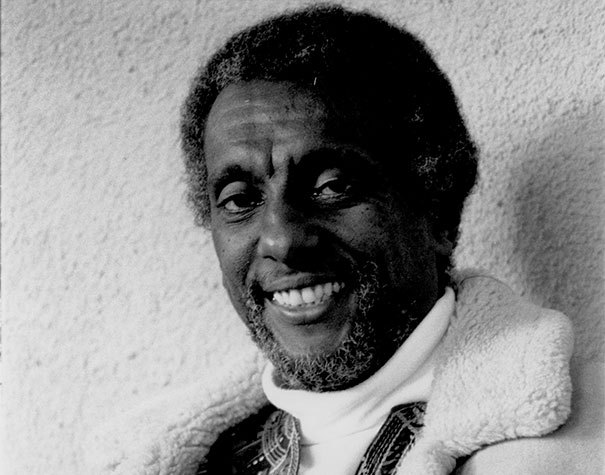
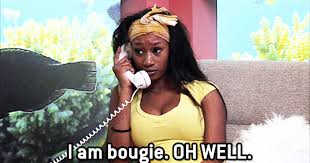
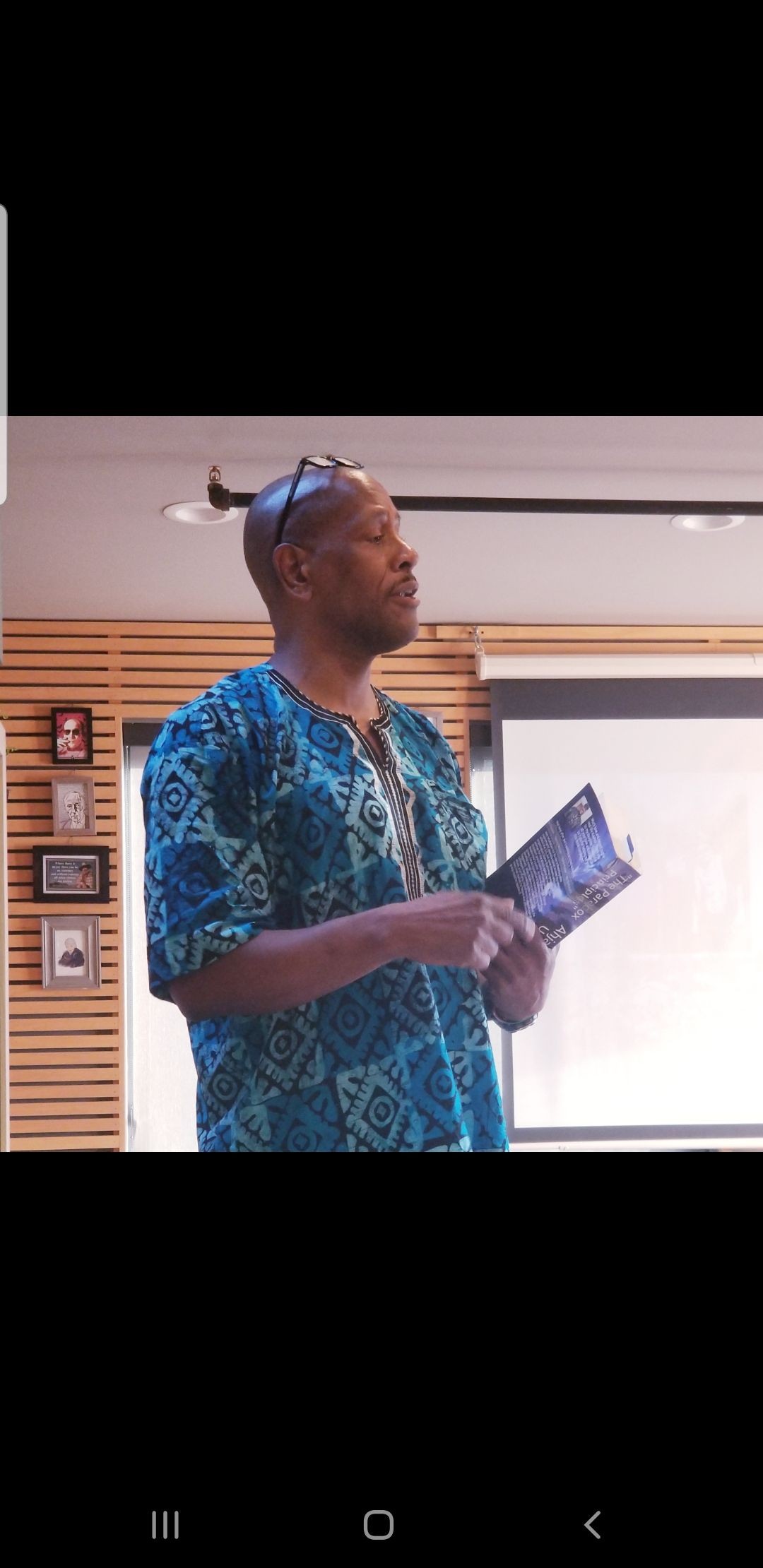
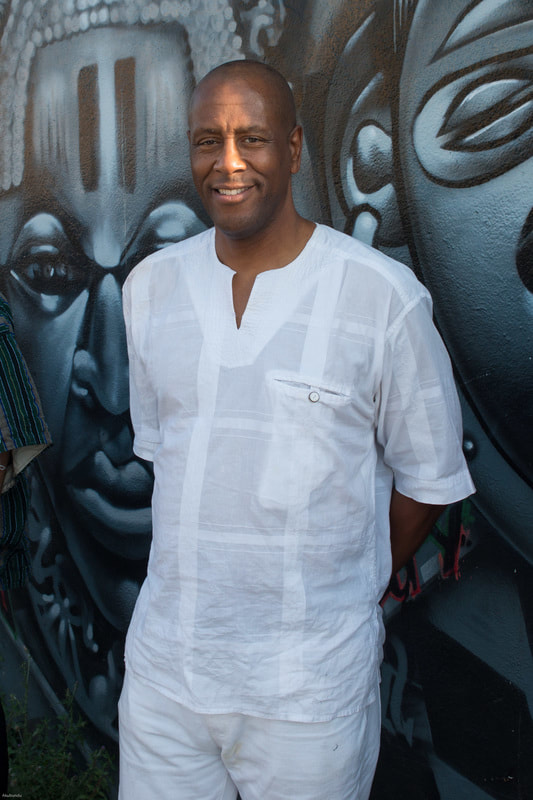

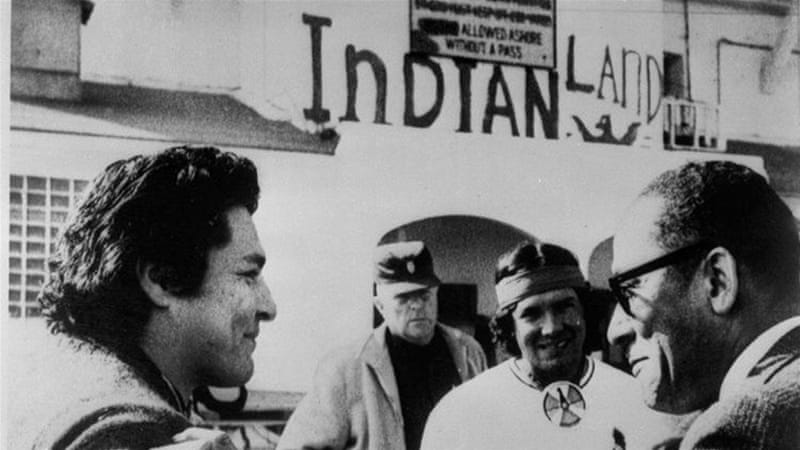
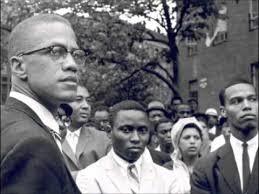
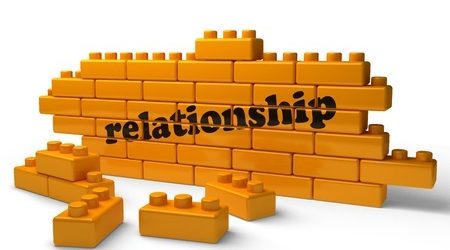
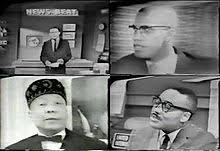
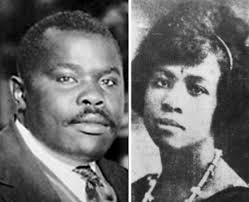

 RSS Feed
RSS Feed
